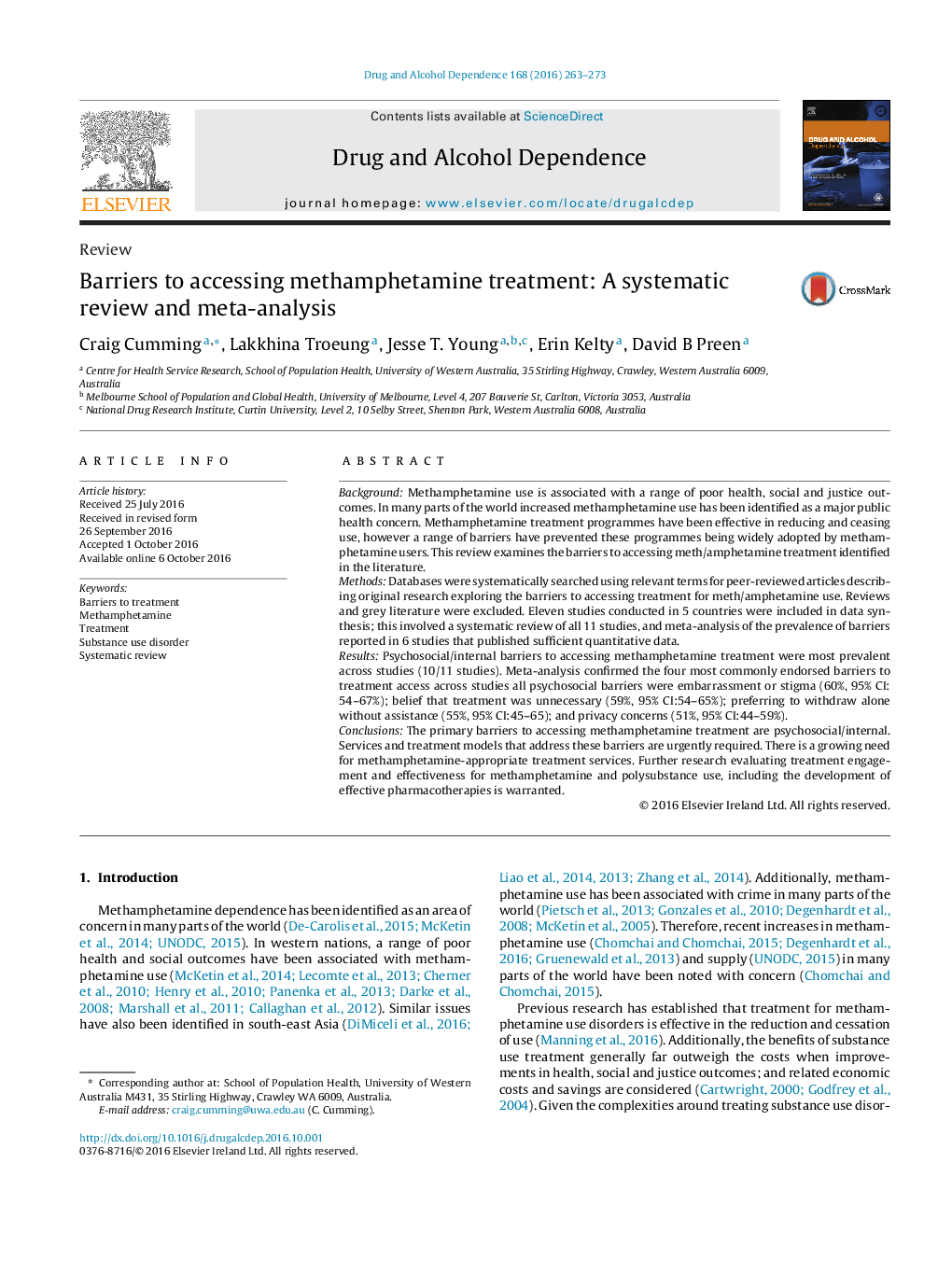| Article ID | Journal | Published Year | Pages | File Type |
|---|---|---|---|---|
| 5120439 | Drug and Alcohol Dependence | 2016 | 11 Pages |
â¢Psychosocial barriers to accessing methamphetamine treatment are most prevalent.â¢The most prevalent barrier was stigma/embarrassment.â¢Methamphetamine services addressing psychosocial barriers are urgently needed.â¢Treatment options for polysubstance use involving methamphetamine are also needed.
BackgroundMethamphetamine use is associated with a range of poor health, social and justice outcomes. In many parts of the world increased methamphetamine use has been identified as a major public health concern. Methamphetamine treatment programmes have been effective in reducing and ceasing use, however a range of barriers have prevented these programmes being widely adopted by methamphetamine users. This review examines the barriers to accessing meth/amphetamine treatment identified in the literature.MethodsDatabases were systematically searched using relevant terms for peer-reviewed articles describing original research exploring the barriers to accessing treatment for meth/amphetamine use. Reviews and grey literature were excluded. Eleven studies conducted in 5 countries were included in data synthesis; this involved a systematic review of all 11 studies, and meta-analysis of the prevalence of barriers reported in 6 studies that published sufficient quantitative data.ResultsPsychosocial/internal barriers to accessing methamphetamine treatment were most prevalent across studies (10/11 studies). Meta-analysis confirmed the four most commonly endorsed barriers to treatment access across studies all psychosocial barriers were embarrassment or stigma (60%, 95% CI: 54-67%); belief that treatment was unnecessary (59%, 95% CI:54-65%); preferring to withdraw alone without assistance (55%, 95% CI:45-65); and privacy concerns (51%, 95% CI:44-59%).ConclusionsThe primary barriers to accessing methamphetamine treatment are psychosocial/internal. Services and treatment models that address these barriers are urgently required. There is a growing need for methamphetamine-appropriate treatment services. Further research evaluating treatment engagement and effectiveness for methamphetamine and polysubstance use, including the development of effective pharmacotherapies is warranted.
